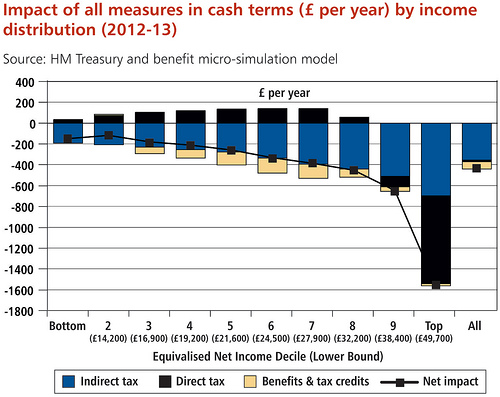The Liberal Democrat challenges for 2011: defining and explaining economic fairness
This is the final piece in a series of posts on the main Liberal Democrat challenges for 2011. You can find all the posts in the series here.
Having started this series with the economy and then moving on to more internal issue in latter posts, it seems fitting to return to economic issues for the final post in this series.
Getting the substance on economic fairness right is and should continue to be a top priority for the party. In addition, getting the messaging right will help differentiate not only the Liberal Democrat contribution to the coalition from that of the Conservatives but also the overall government’s record from that of past Conservative governments.
Though “fair” is a word that many Lib Dem activists love to hate in party slogans, saying that it isn’t clear or distinct, in fact it regularly comes out in market research as being one of the few concepts that people strongly associate with the Liberal Democrats – and one that voters desire in a party.

For Nick Clegg, “social mobility” has been the phrase of choice in recent months. It certainly is a phrase that many in policy making and government circles use but, rather like “street furniture”, despite being popular in such circles it is almost never used by people outside such circles. That in itself should be a strong warning against using it as a regular public description of what the party is about.
It also has the problem that mobility means not just people moving up, it means people moving down too – not an obviously desirable end to showcase in your main slogan. It also leave unsaid how important the party feels the overall levels of inequality are: is a highly mobile but also highly unequal society an outcome we would be happy with? Is the party of a similar view to that of The Spirit Level?
There is therefore something the party can learn from Paddy Ashdown’s approach to this issue. Like Nick Clegg, he greatly emphasised the importance of children’s early years in shaping their later opportunities. Though in typical Paddy fashion he enthusiastically adopted and then discarded a whole set of phrases, slogans such as “Unlocking Britain’s potential” had some mileage in them and the emphasis on giving people the chance to be who they wanted to be also encompassed people who wanted to be different rather than simply looking at who was moving up or down.
Paddy’s phrases were not doorstep vernacular either but got close to a pithy explanation of how the Liberal Democrats want everyone to have a fair start in life and a chance to achieve based on their own work and ability rather than on their inherited condition. Social mobility is one of the means to that end, but Paddy’s vision was a bigger one for which social mobility in itself was not sufficient.
The challenge for the party in 2011 is deciding what the vision is (and is it just social mobility?) and how to communicate it.
As Jonathan Calder’s critique of Richard Grayson showed, the party is largely locked into referring to thinkers from the nineteenth and early twentieth centuries. Add that to the paucity of think tanks producing work that tests and fills out Liberal Democrat approaches and there is a need not only to get the language right but also to encourage a more vibrant culture of policy thinking and debate.
There will be many opportunities to demonstrate economic fairness through policies – choices made in the next budget and decisions made over the banking industry in particular – but the lack of public credit for measures taken so far such as the increase in capital gains tax or the big cuts in pension tax breaks for the very richest are a reminder how politics is not just about substance; it is also about getting the message right.
Talking about “social mobility” on its own is unlikely to achieve that.
Thanks to Alex Wilcock for helping me refresh some of my memories of Paddy Ashdown’s policies and adding to them
Can someone explain to me, the fairness of 2.5 Million unemployed?